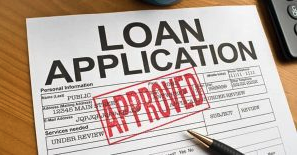
 By John Wolf
By John WolfWhat are Wakefield and associates?
“Wakefield and Associates” is an agency whose business is collecting debts. Debt collection agencies are known for acquiring unpaid debts from creditors or being hired by your creditors to collect repayments from you. These agencies not only perform this task but also. The emotional toll on the person in debt, Defaulting on payments can result in significant financial repercussions, such as a decrease in your credit score and potential legal action. Our guide provides comprehensive information on Wakefield and Associates and the steps you can take to remove them from your credit report.
Can I confirm if Wakefield and Associates is a genuine company or simply a name?
When Wakefield and Associates first contact someone, the recipient often wonders who they are and if they are real. As debt collection agencies, creditors hire these agencies to collect outstanding payments, or the agencies have purchased unpaid debts from creditors. They are now responsible for collecting repayments from the debtor.
Some bad debt collection agencies are trying to scam people out of their money. It’s understandable to be cautious about Wakefield and Associates, but they are a legitimate business that has existed since 1986. They’re based in Aurora, Colorado, and have offices in Knoxville, Tennessee, employing over 175 people. While they’re not accredited, they’ve had around 377 complaints resolved in the past three years.
- They have multiple trade names throughout the United States, including the following: Wakefield and Associates Inc.
- Wakefield and Associates Morgan Colorado
- Wakefield and Associates Colorado
- Wakefield and Associates Knoxville TN
- Wakefield and Associates Jefferson City, MO
Don’t worry if you need help removing Wakefield and Associates from your credit report. You can follow specific steps to address and resolve the issue. Start by familiarizing yourself with the new federal debt collection regulations that took effect on November 30, 2021. It’s important to stay calm, avoid ignoring the problem, and follow the steps outlined in this guide to fight against the company effectively.
Knowing Your Rights
- You must know your rights under the Fair Debt Collection Practices Act (FDCPA) to resolve your debt. Please keep these essential points in mind:
– Debt collectors can only call you after 8 am or 9 pm.
– They also can’t call you at your workplace.
– If you have a lawyer, debt collectors must communicate with them instead of you.
– Debt collectors can’t discuss your debts with anyone other than you or your lawyer.
– They’re not allowed to use threats or profanity.
– Debt collectors must identify themselves and their company and can’t pretend to be law enforcement or other officials.
– They can’t threaten you with asset seizure or imprisonment. More way to deal with a loan
If you suspect a debt collector is breaking these rules, report them to the CFPB, FTC, and your state attorney general.

2. Checking and confirming the debt.
As of November 30, 2021, new federal debt collection regulations became active. These regulations require debt collectors to send you. The individual should receive a Notice of Debt within five days. This Notice will provide more information than was previously required. It must include valid data, such as an itemization date, and any incomplete information will render the debt uncollectible until the Notice is corrected.
There are five possible itemization dates,
- One of which is the date when the creditor last sent an invoice or statement to the consumer.
- What is the date of the charge-off?
- The date when you made the final payment.
- Please provide the date of the transaction that resulted in the debt.
- The judgment date if the debt has led to a court judgment.
- The date is essential to establish whether the Statute of Limitations has expired.
The Notice of Debt should include other important information besides the debt itself. This information is crucial.
- To proceed further, kindly share your full name and complete mailing address—the debt collector.
- Please provide your complete name and mailing address as a consumer.
- Please provide the creditor’s information if the debt is associated with a financial product like a credit card or loan.
- Account number linked to the debt.
- Who is the creditor that currently owns the debt?
- Please provide a breakdown of the current debt amount, including a detailed list of all payments made and any additional charges, such as interest and fees.
The Notice of Debt should contain a statement informing you of your rights under the Fair Debt Collection Practices Act, including the right to dispute the debt within 30 days of receiving the letter.
When you receive the Notice of Debt, you’ll also receive a form that you can use to dispute the debt if you choose to do so. You are allowed to discuss the debt for three reasons:
- You are sure that the debt does not belong to you.
- The amount of debt provided needs to be revised.
- Other (To proceed, please provide more information in this case.)
It is crucial to carefully read the information, mainly when dealing with debt collectors like Wakefield and Associates. That is because they may need to possess the information required to confirm a debt.

If you wish to challenge the debt, you must send a certified letter to the debt collector addressing the issues and requesting specific information:
- If you want to prevent Wakefield and Associates from contacting you, writing a letter asking them to stop all communication is advisable.
- Remember to keep a copy of the document for yourself and send the original to Wakefield and Associates.
- It is essential to include a “return receipt requested” when sending the letter to ensure you have proof of its delivery.
To dispute a debt, you can contact the credit bureaus for assistance.
If you are sure the debt collection agency did not correctly validate the debt, you can dispute it by contacting the credit bureaus. You must file a separate account and complaint with each credit bureau; they operate and make decisions independently.
The main credit bureaus to contact are:
To get in touch with them, you can choose to reach out by mail, phone, or electronically according to your preference. Once you contact them, they will conduct investigations to verify the debt. The debt must be removed from your credit report if they cannot.
5. Settling The Debt With a Pay-For-Delete Agreement
When dealing with debt collectors, settling and resolving the situation is the final step. While there may be rare cases where the collection debt is not yours, most cases show that the debt belongs to the person involved.
You can negotiate with your debt collector to pay back less than the total amount owed. On average, collection agencies are willing to settle for 40-60% of the remaining balance, which could save you thousands of dollars and help you become debt-free quicker.
An excellent approach to beginning negotiations is to suggest an initial offer of approximately 10% and then observe the other party’s response. It’s important to stand your ground and not allow them to manipulate you into agreeing to an amount that doesn’t suit you. Ultimately, aim to reach a settlement that you feel comfortable with.
Conclusion
Although dealing with Wakefield and Associates may not be pleasant, learning how to fight back can help remove them from your credit report. It’s important not to panic, educate yourself about your rights, and utilize available negotiating resources. With these steps, you can eliminate Wakefield and Associates in no time.
